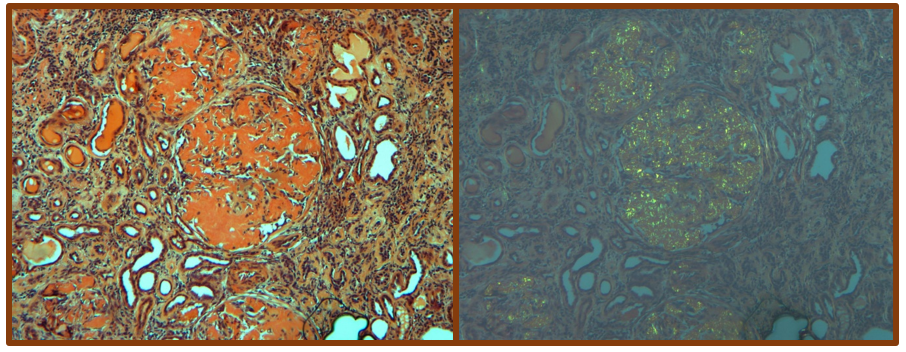The Havasi lab conducts basic and translational research in the area of renal injury in amyloidosis and monoclonal immunoglobulin deposition disease. Her weekly amyloidosis clinic has exposed her to the many problems facing amyloidosis patients and created a keen passion to identify and develop new treatment options for amyloidosis patients. She established a productive collaboration with the Amyloid Research Laboratory and, currently, her research focuses on the toxic effects of light chains in the proximal tubule using cell culture and animal models. The main aim is to determine the mechanisms involved in direct kidney cell toxicity focusing on autophagy, the main recycling process in cells. By understanding the mechanism causing kidney cell toxicity we will get closer to finding a therapy which can potentially prevent or cure kidney damage in patients with plasma cell dyscrasia.
Five selected publications:
1. Havasi A et al. Predictive value of the new renal response criteria in AL amyloidosis treated with high dose melphalan and stem cell transplantation. American Journal of Hematology, 2018. PMID: 29430701
2. Prokaeva T et al. Hereditary Renal Amyloidosis Associated with a Novel Apolipoprotein A-II Variant. Kidney International Reports, 2017. PMID: 29270531
3. Menn-Josephy H et al. Renal Interstitial Fibrosis: An Imperfect Predictor of Kidney Disease Progression in Some Patient Cohorts. American Journal of Nephrology, 2016. PMID: 27626625
4. Nolin AC et al. Proteinuria causes dysfunctional autophagy in the proximal tubule. American Journal of Physiology- Renal Physiology, 2016. PMID: 27582098
5. Havasi A et al. Validation of new renal staging system in AL amyloidosis treated with high dose melphalan and stem cell transplantation. American Journal of Hematology, 2016. PMID: 27356490
